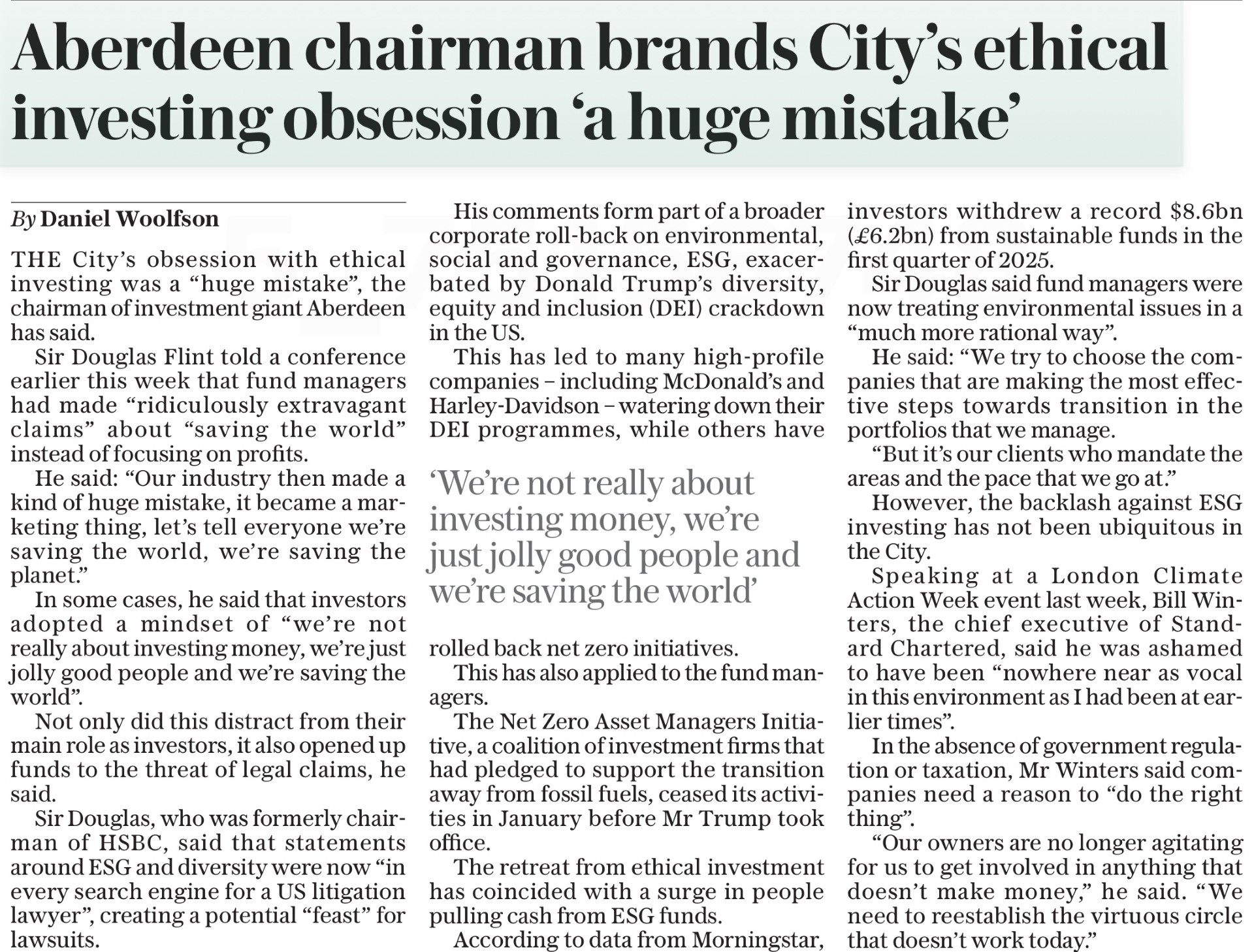Good business is not just a fad!
4th July, 2025
By Jenny Herrera, CEO of Good Business Charter
Earlier this week, Sir Douglas Flint, chairman of investment giant Aberdeen, branded the City’s commitment to ethical investing as a “huge mistake”. He criticised fund managers for making “ridiculously extravagant claims” about “saving the world” and suggested that a misguided focus on environmental, social, and governance (ESG) factors had distracted from the real business of generating profits.

This kind of rhetoric is gaining traction in certain circles — where ESG is painted as performative, overly idealistic, or even dangerous to investors. But we know that dismissing responsible business practices as a trend or “marketing thing” not only misses the point — it undermines the very foundation of long-term business success.
Responsible business is not a trend — it’s a transformation
At the Good Business Charter, we advocate for ethical practices not because they sound good in annual reports, but because they work. In fact, they are the foundation of resilient, high-performing organisations.
Consider what responsible business actually involves:
-
Paying workers fairly
-
Being transparent with customers
-
Paying fair tax
-
Reducing environmental harm
-
Creating an inclusive, respectful workplace
These aren’t radical ideas. They’re sensible, sustainable approaches to running a business that values people and the planet as much as profit — and understands that all three are deeply interconnected.
The business case is stronger than ever
Contrary to the claims made by some, ethical business isn’t at odds with profitability. In fact, many businesses that adopt responsible practices find they’re better equipped to manage risk, attract and retain top talent, build customer loyalty, and adapt to a changing regulatory and social landscape. These are all critical factors for long-term commercial success — and they stem directly from doing business the right way.
In other words, doing the right thing isn’t just morally right — it’s commercially smart.
That’s why hundreds of businesses across the UK have chosen to join the Good Business Charter. They understand that responsible practice leads to sustainable profit, not in spite of it.
A moment of clarity, not capitulation
Yes, there are valid concerns about “greenwashing” and performative policies. But the solution is not to abandon ethical investment — it’s to double down on transparency, accountability and genuine impact. We should absolutely be scrutinising ESG claims. But we must not lose sight of the values and vision that underpin them.
Sir Douglas’s comments reflect a broader backlash — but this is precisely the moment when values-driven businesses must speak up. We must clearly communicate that being a ‘good’ business isn’t a box-ticking exercise or political statement. It’s a commitment to doing business in a way that builds long-term value for all stakeholders.
A call to business leaders
If you’re a business leader reading this, ask yourself:
-
Are we building trust with our stakeholders?
-
Are we considering the long-term implications of our choices?
-
Are we creating value for society, not just shareholders?
If the answer is yes, then you are on the right path — one that will outlast any headline or backlash.
Let’s not allow the conversation to be derailed by cynicism. Let’s keep championing what we know to be true: responsible business is good business.

